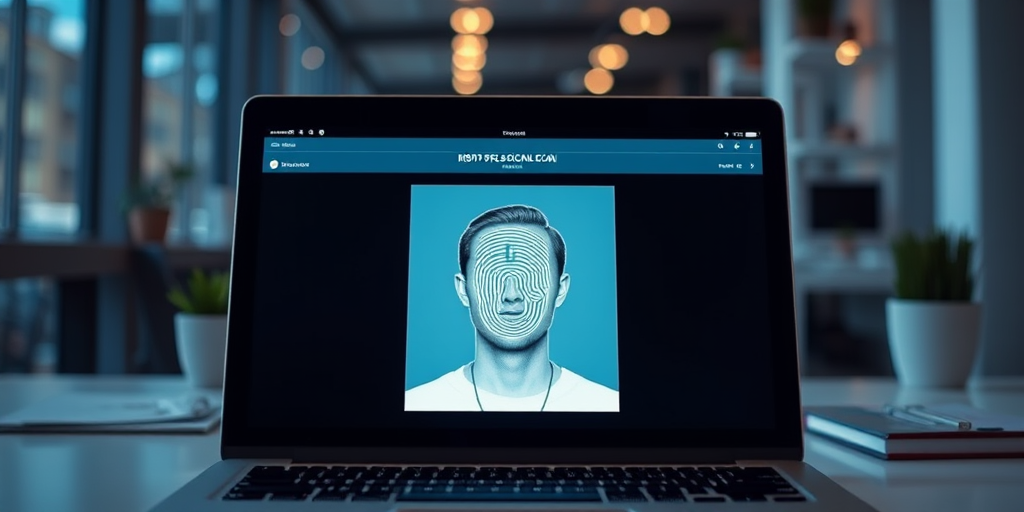Have you ever wondered if AI could be the ultimate game-changer for laptop security? We’ve seen laptops evolve from bulky, vulnerable machines to sleek systems demanding robust defenses. Today, AI integration transforms protection measures by automating threat detection and refining user authentication protocols. By harnessing machine learning and intelligent analytics, these innovations not only elevate security efficiency but also anticipate emerging risks before they manifest. Join us as we delve into how AI-driven enhancements are redefining laptop defense in our ever-connected digital world.
AI-Driven Threat Detection and Intrusion Prevention in Laptop Security
AI-powered antivirus software now detects and neutralizes malware in real time while continuously learning from previous incidents. Our systems employ digital threat detection methods that combine behavioral anomaly scrutiny with comprehensive data analysis, enabling them to identify unusual patterns and flag suspicious login attempts. This advancement significantly reduces response times, as automated and adaptive threat detection quickly isolates and mitigates risks before they can compromise sensitive data. The integration of these technologies ensures that emerging threats are met with immediate and precise countermeasures.
- real-time monitoring
- predictive vulnerability appraisal
- automated alerting
- continuous learning
- dynamic response protocols
These key features form the backbone of our AI-based threat detection systems. Real-time monitoring constantly surveils system activities, providing immediate insights into potential threats. Predictive vulnerability appraisal assesses system weaknesses before they are exploited, while automated alerting ensures that security teams are notified without delay. Continuous learning allows the system to evolve with each new encounter, and dynamic response protocols adapt defenses in real time. This comprehensive approach enhances the overall intrusion prevention utility, ensuring that laptop systems are fortified against sophisticated attacks.
By synthesizing these advanced capabilities, modern laptops achieve a level of digital protection that static security measures cannot match. Enhanced malware neutralization tactics and adaptive learning algorithms combine to form a resilient security framework aimed at counteracting emerging cyber threats. The precise interplay between real-time detection and proactive defense not only safeguards user data but also continuously refines protection protocols, setting a new standard for intrusion prevention utility in today’s ever-evolving threat landscape.
Adaptive Learning Security Protocols and Predictive Vulnerability Appraisal

AI systems are transforming the way laptops defend against cyber threats by adapting and learning from previous attacks. These systems leverage adaptive countermeasure development to update security protocols dynamically. With predictive vulnerability appraisal, they identify potential weaknesses in advance, allowing for proactive adjustments such as dynamic firewall configuration. This evolution, coupled with customized settings like adjusting screen brightness or app predictions, ensures that protection measures remain as agile as the threats they face. Such continuous enhancements form the backbone of modern security strategies.
- dynamic firewall reconfiguration
- continuous threat monitoring
- self‐operating hazard insight
- real-time protocol updates
By incorporating these adaptive features, AI-driven defenses create a continuous monitoring dashboard that tracks system behavior, detects anomalies, and automatically addresses vulnerabilities. This bullet list outlines key attributes that not only reinforce security protocols but also provide a multifaceted approach to threat mitigation. The integration of these elements into existing frameworks means that laptops can respond promptly and efficiently when confronted with novel cyber risks, minimizing potential damage.
The importance of evolving security measures cannot be overstated in an environment where threats rapidly transform. Modern laptops rely on continual learning algorithms to adjust their defenses, ensuring that every new cyber incident serves as a learning opportunity. By updating protocols in real-time and integrating predictive analytics, systems remain well-prepared against emerging challenges, providing a robust, resilient defense in an ever-changing digital landscape.
Final Words
In the action, we explored laptop evolution and the pivotal integration of AI in fortifying security.
We reviewed automated threat detection, biometric enhancements, and adaptive learning protocols that shape modern defense systems.
Our discussion highlighted how upcoming innovations will elevate security standards by driving continuous improvement.
Embracing these advancements reinforces The Role of AI in Enhancing Laptop Security Measures, ensuring a resilient, proactive approach to protecting digital assets.
Our analysis leaves us confident and optimistic about the future of laptop security.
FAQ
Q: What is the primary role of AI in laptop security?
A: AI in laptop security functions as an intelligent defense system that provides real-time threat detection, automated response protocols, and continuous learning capabilities to protect against evolving cyber threats.
Q: How does AI improve biometric authentication on laptops?
A: AI enhances biometric security through advanced facial recognition, fingerprint analysis, and behavioral pattern recognition, significantly reducing false positives and increasing authentication accuracy.
Q: What advantages does AI offer in threat detection?
A: AI-powered threat detection analyzes patterns, identifies anomalies, and responds to potential security breaches in real-time, offering faster and more accurate protection than traditional security systems.
Q: How does adaptive learning enhance laptop security?
A: Adaptive learning security protocols continuously evolve by analyzing new threats, updating defense mechanisms, and adjusting firewall configurations automatically to maintain optimal protection levels.
Q: What future innovations are expected in AI-enhanced laptop security?
A: Future innovations include quantum-safe cryptography, autonomous security enhancements, edge computing protection, and advanced biometric systems integrated with artificial intelligence capabilities.
Q: How does AI combat security fatigue?
A: AI reduces security fatigue by automating routine security tasks, streamlining authentication processes, and managing threat detection without requiring constant user intervention.
Q: What are the main benefits of AI in cybersecurity?
A: AI provides automated threat detection, continuous system monitoring, reduced response times, enhanced authentication accuracy, and adaptive defense mechanisms against emerging cyber threats.



